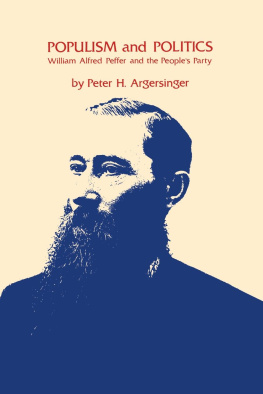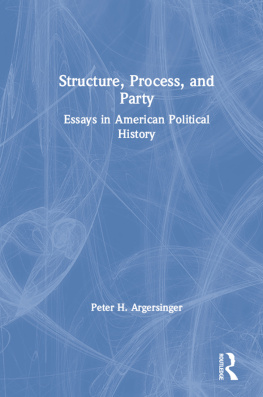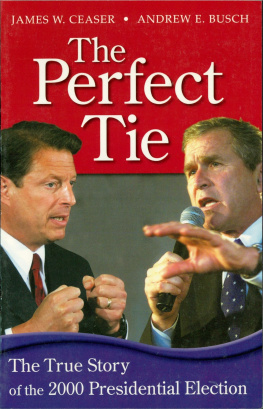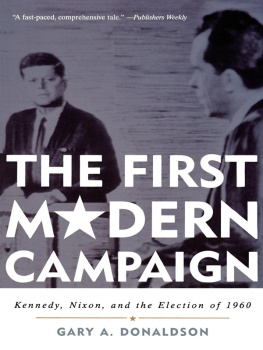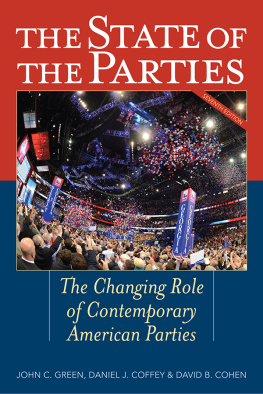ISBN: 978-0-8131-5108-3
Library of Congress Catalog Card Number: 73-86400
Copyright 1974 by The University Press of Kentucky
A statewide cooperative scholarly publishing agency
serving Berea College, Centre College of Kentucky,
Eastern Kentucky University, Georgetown College,
Kentucky Historical Society, Kentucky State University,
Morehead State University, Murray State University,
Northern Kentucky State College, Transylvania
University, University of Kentucky, University of Louisville,
and Western Kentucky University.
Editorial and Sales Offices: Lexington, Kentucky 40506
Preface
The past two decades have witnessed a historiographical debate over the nature of Populism in which participants on each side have made facile judgments based on inconclusive evidence and incomplete research. Historians have carried on their debate largely apart from the political history of the period, and their analyses of Populism have suffered accordingly, with basic questions about the movement remaining unanswered, indeed unasked. Both historical friends and critics of Populism have failed in the most elemental task of identifying their protagonists, and they have virtually ignored the time dimension in arguing that Populists believed this, or that Populism represented that. Although the life of the Peoples party was quite short, the party and its adherents changed remarkably during that time, and no exposition on the nature of Populism which fails to account for this will add to our understanding.
The purpose of this book is to examine precisely those changes that Populism experienced as it confronted American politics and society in the 1890s. I employ several methods of historical analysis, including quantitative techniques in addition to more traditional methodology, and I examine Populism at the personal, local, state, and national levels in an effort to review fully the transformation of the movement. Thus, although my study is broadly biographical, I focus on William Alfred Peffer primarily to illustrate the changes within Populism. For this purpose, his career is unequaled: his six-year term in the United States Senate coincided exactly with the generally recognized birth and death dates of Populism; and with good reason, for he carried the title Father of Populism and was the foremost public representative of the movement in the 1890s, though historians have since neglected him. But Peffer merely illustrates the more important problems considered, and consequently much of this book finds him only distantly involved personally. I closely investigate the Populist politics of Kansas, for example, in order to suggest reasons for changes, decisions, and policy distinctions at the national level, though Peffer usually avoided any direct intervention in state politics at that time.
The essence of Populism was that it was a political movement, and the essence of the Peoples party was that it was a political party. This study is therefore primarily political history, and I treat the issues that have bedeviled other historians primarily only insofar as they operated politically. There are of course some reflections on the interpretive debate, but I hope that the larger work of tracing the metamorphosis of the movement will itself provide a better clue to the problem of Populism in America.
I am indebted to many people for many things. The late Professor George L. Anderson of the University of Kansas first aroused my interest in Populism and continued thereafter to encourage my work. Professor Gwen S. Argersinger of the University of New Mexico contributed immeasurably her time, assistance, and knowledge in both the researching and writing of this study. Professor Allan G. Bogue of the University of Wisconsin directed the dissertation on which this book is based and provided valuable advice and suggestions. Professor James D. Norris of the University of Missouri at St. Louis gave me reassuring advice and consistent support when I began this study. Professor David P. Thelen of the University of Missouri at Columbia gave an earlier form of the manuscript a critical reading and contributed many valuable comments and suggestions. The staffs of many fine institutions, especially the Kansas State Historical Society and the State Historical Society of Wisconsin, were helpful in a variety of ways. Portions of originally appeared in the Kansas Historical Quarterly, and permission to incorporate this material is gratefully acknowledged. My wife, Jo Ann Eady Argersinger, devoted her time, patience, and encouragement to the completion of this work and improved it in both style and substance. If, despite all this assistance, errors still persist, they are entirely mine and deservedly so.
CHAPTER ONE
Farmers and Politics
FROM THEIR very beginnings, Kansas and the Republican party were inextricably related. The difficulties of the territorial years, the struggle of the Civil War, and the postwar influx of Union veterans sustained their mutual attraction. As a one-party state, however, Kansas still witnessed the political turmoil of the 1860s and 1870s, for all political positions found representation within an active Republican party. The state GOP, with its flexibility and responsiveness, largely controlled those reform impulses that culminated in Populism in the 1890s. Independent parties existed, but even during the economic collapse of the 1870s most reformers found it more convenient and productive to seek change within the existing party structure rather than through a third party.
William Alfred Peffer fit the pattern of these cautious reformers. Born into a distinctive rural society in Pennsylvania in 1831, Peffer inherited an enduring belief in the classical virtues and values of an agrarian way of life. A temperance and antislavery agitator in his youth, he then settled in Indiana where he farmed and helped organize the Republican party locally in 1854. Following the Panic of 1857 he moved to Missouri only to flee in 1861 because of his Unionist sentiments and to join the Eighty-third Illinois Infantry. He served in Tennessee as a foot soldier, quartermaster, and judge advocate, which provided his enduring title, Judge Peffer. His liberal racial and political attitudes necessitated a postwar departure from Tennessee and in 1870 he settled in Kansas as an editor and lawyer. An active local reformer, Peffer nevertheless refused to break with the GOP in 1872 over the issue of political reform, insisting that greater reform and more reliable candidates were available through regular action. In 1874-1875, a period of drought and depression, Peffer worked as a Republican state senator to produce an effective political response to the troubles of destitute farmers and burdened town-dwellers. He scorned the Independent Reform party of those years as composed of shysters and charlatans whose reform interests involved only personal aggrandizement through an irresponsible indifference to public needs. Having suffered in the past for his Republicanism, Peffer was unwilling to leave his party voluntarily during hard times and little sympathized with those who did.

